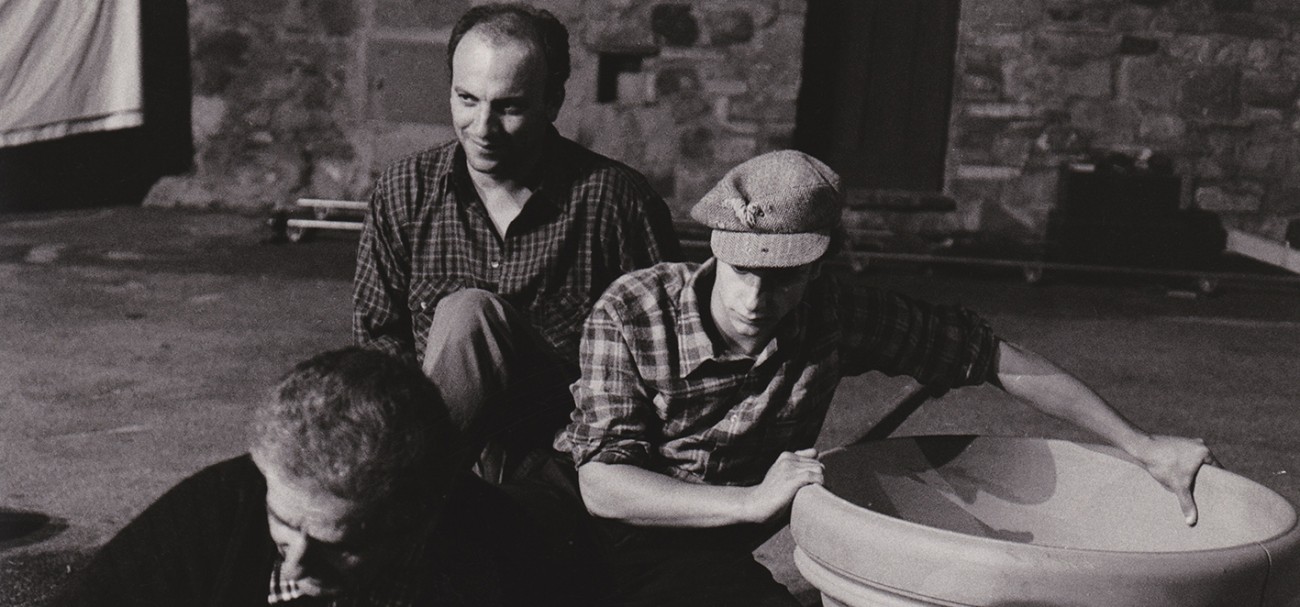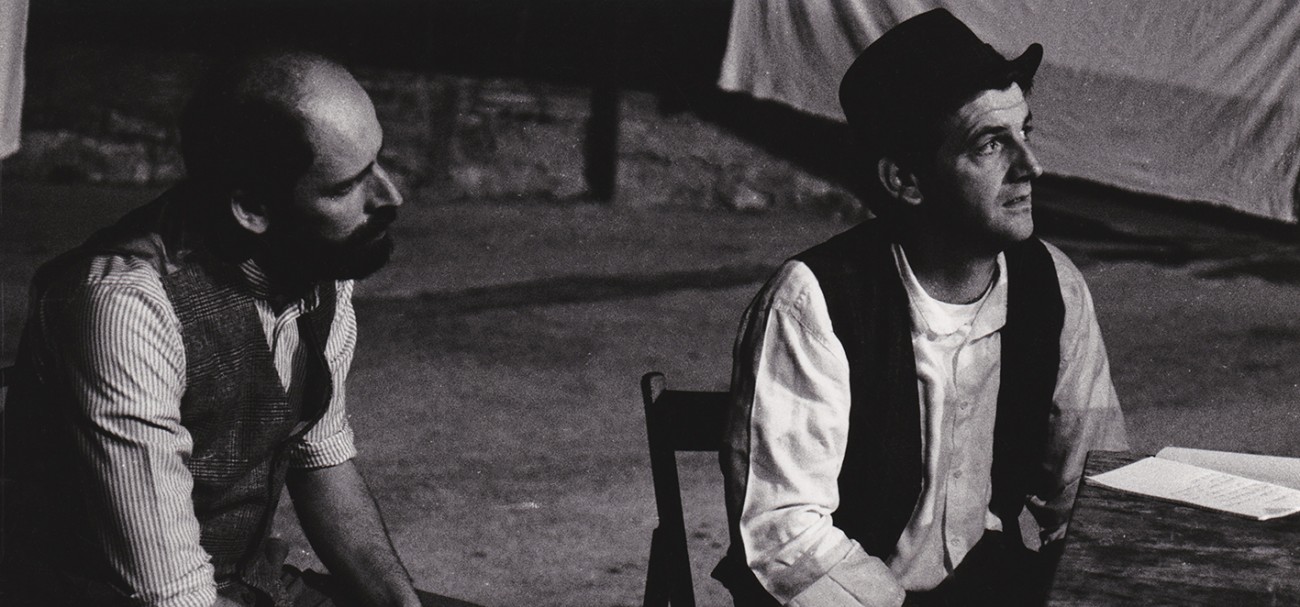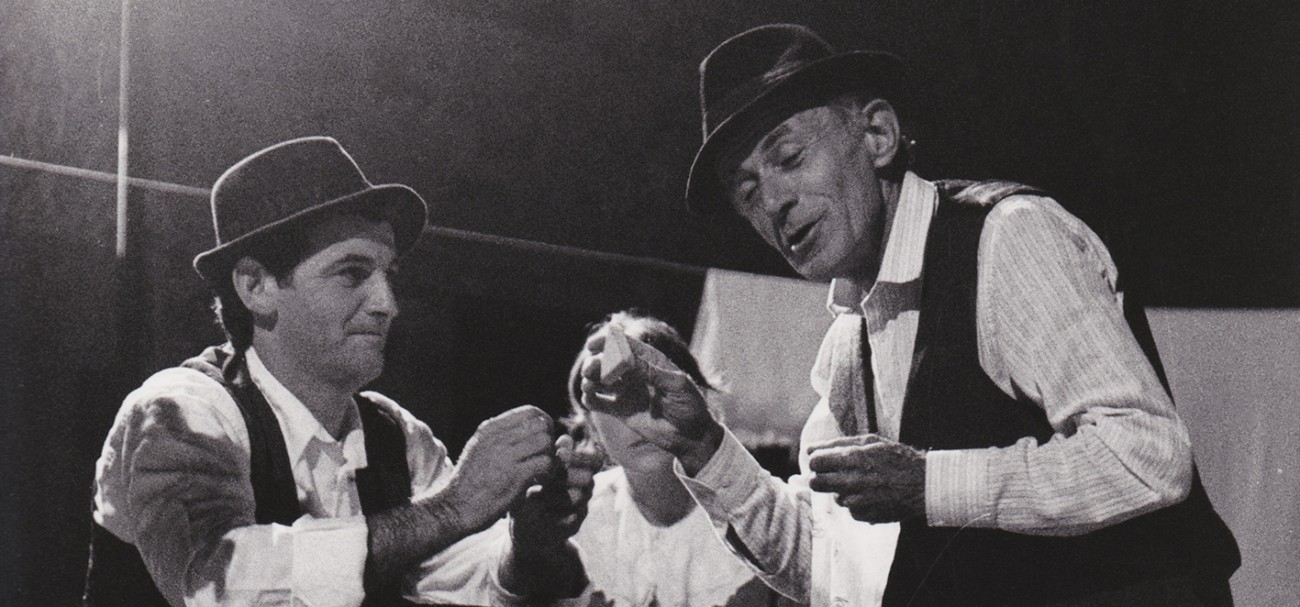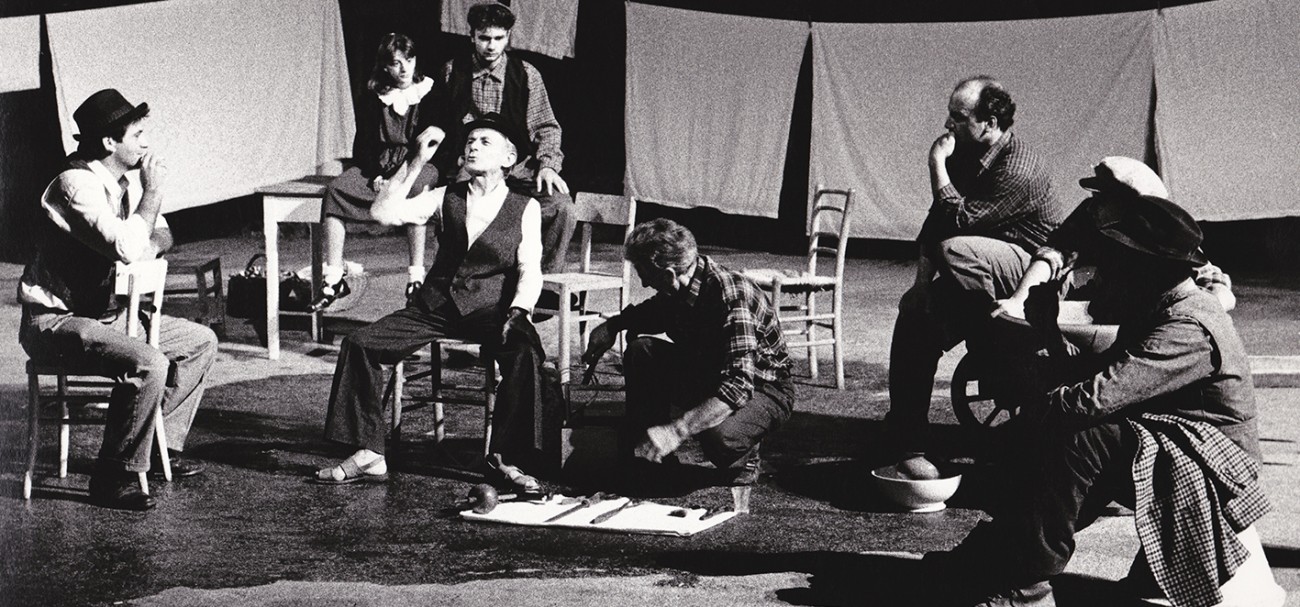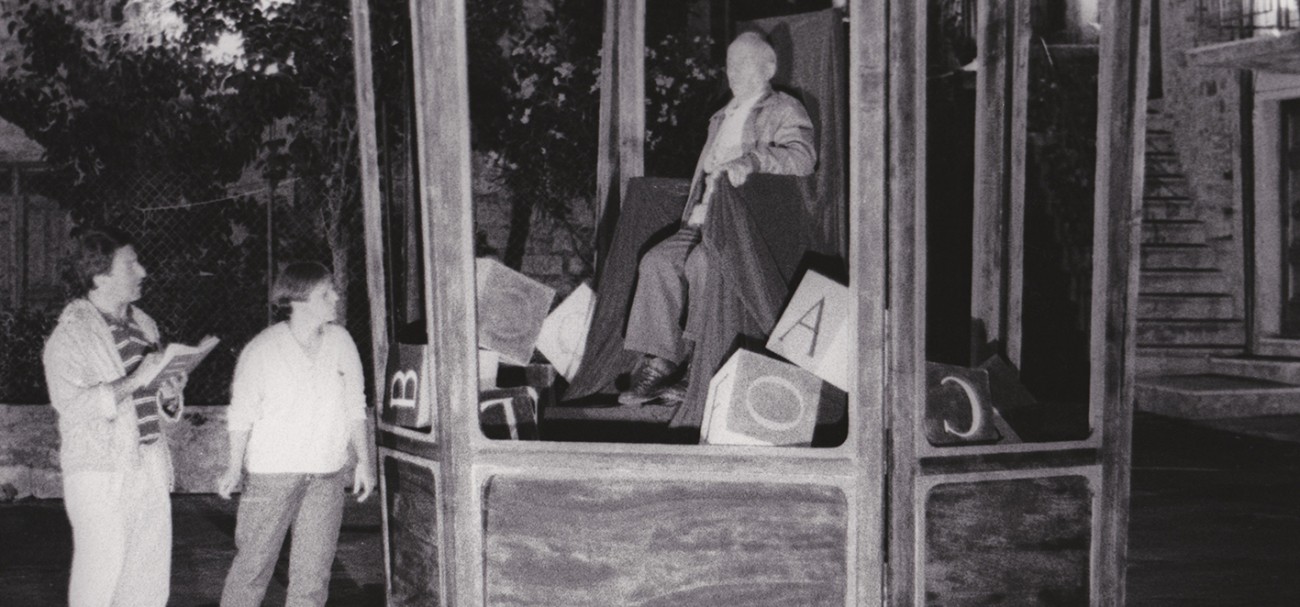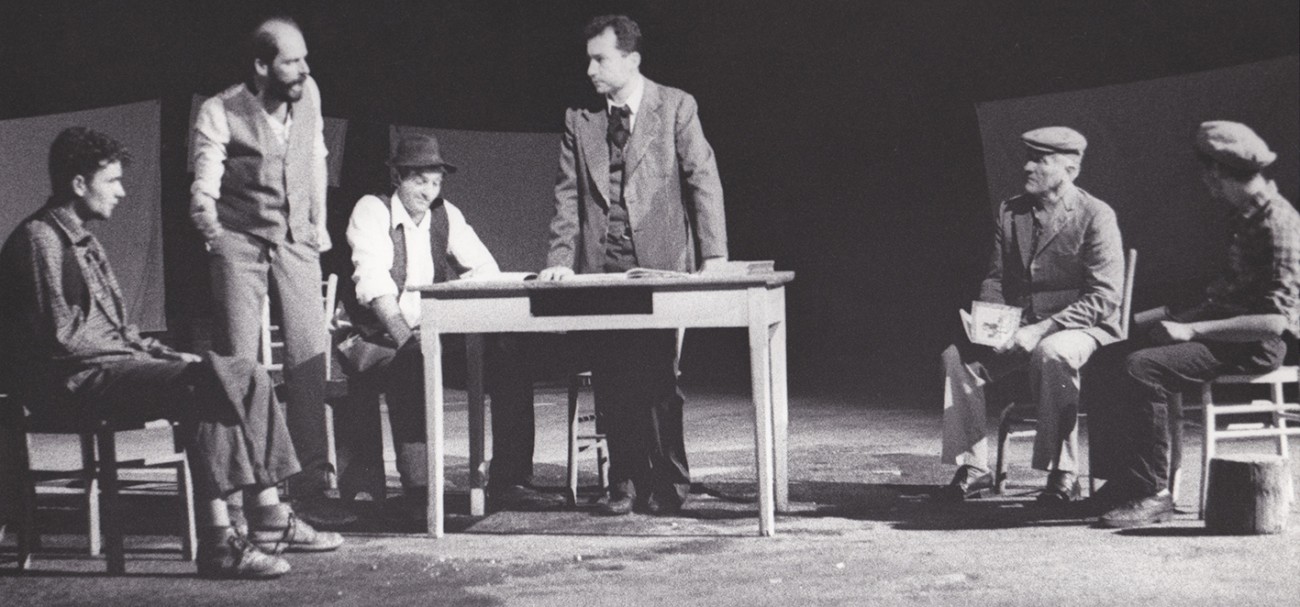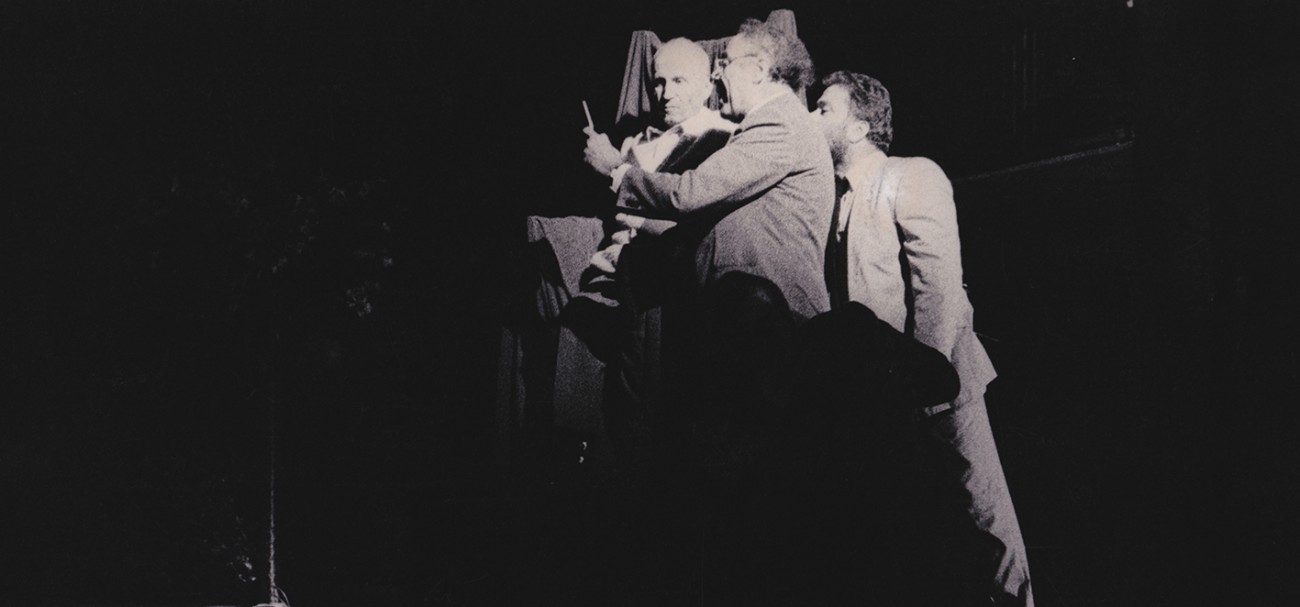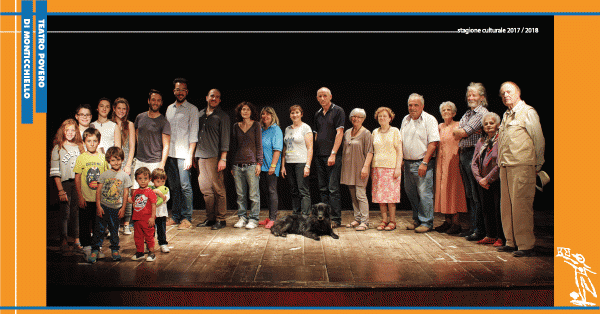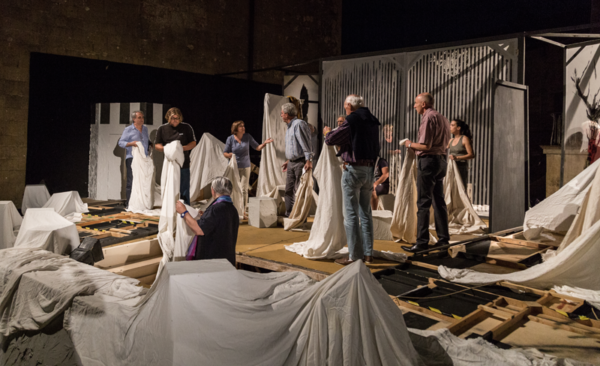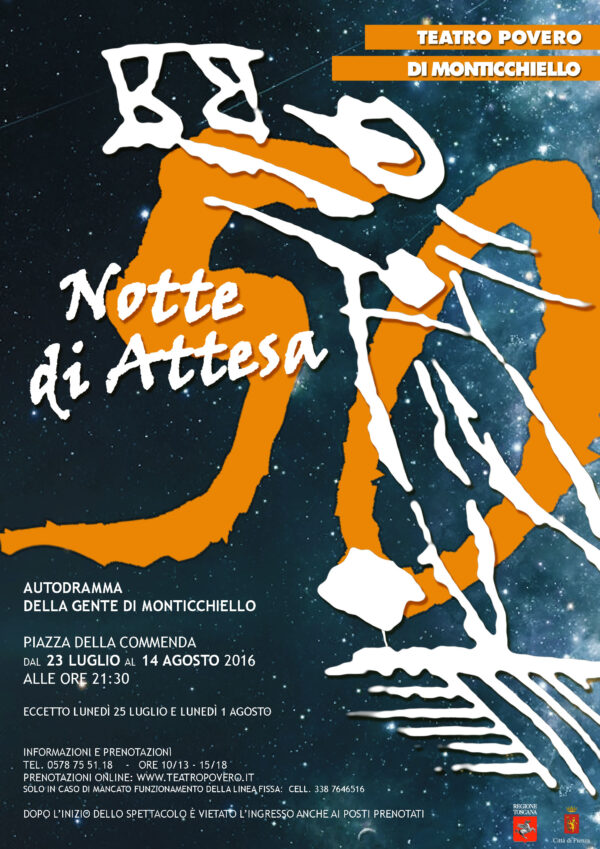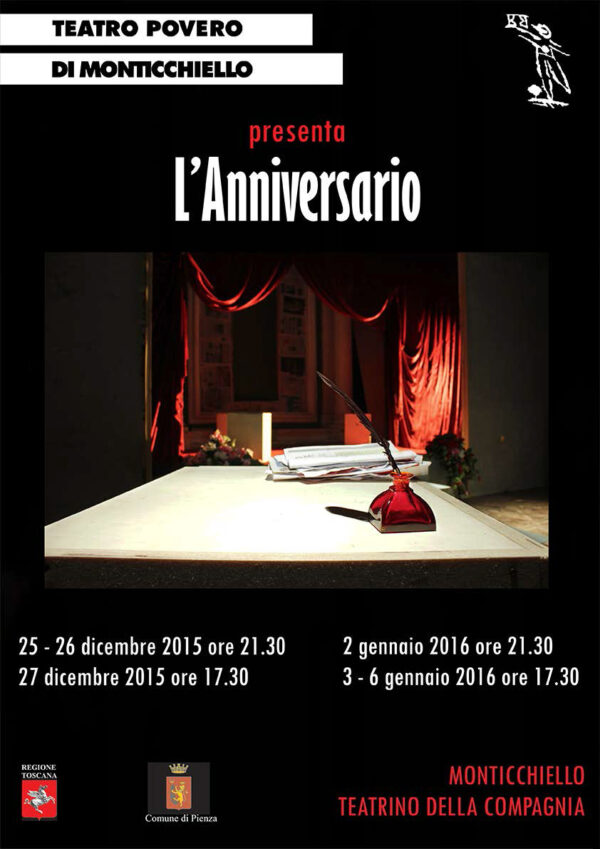Words, and Silence: this year the Teatro Povero addressed on stage these two contrasting values, or sets of behaviour. As always, approaching the subject in two different contexts: that of the peasant society, which everyone still remembered, and that of the modern world.
The first act was a series of scenes set in the 1920s. For peasants, in most contexts, the ability to use words was envied—it seemed to provide power, even a kind of liberation. The words of the Catholic liturgy were respected, though not always understood. The travelling artisan with his salesman’s patter was able to fascinate, and even to control, the less educated and less well informed peasants who were trapped on their farms. And it was shown how under the fascist régime any attempt to instruct the peasants—to give them words which would enable them to express themselves and analyse their condition—was seen by the ruling class as dangerous and something to be suppressed.
In respect of the modern world, in Act II, things were viewed differently. Nowadays we are bombarded technologically by an incessant stream of words and information which, if we think about it, we don’t necessarily want. The village was shown as being hit by a strange disease, whereby people were first compelled to talk incessantly, and then in a second stage refused to talk at all. This dilemma was combined with another one: the increasing suspicion in Monticchiello that the village’s own tool of self-expression, its theatre, was leading to a situation whereby the people were regarded as a display for other people, even as a museum. Attempts by intrusive outsiders to ‘cure’ the disease left an impasse with no resolution.
The finale tried to break the impasse and reject the extremes: it returned us to a situation of normal conversation, neither too many words nor too few.

